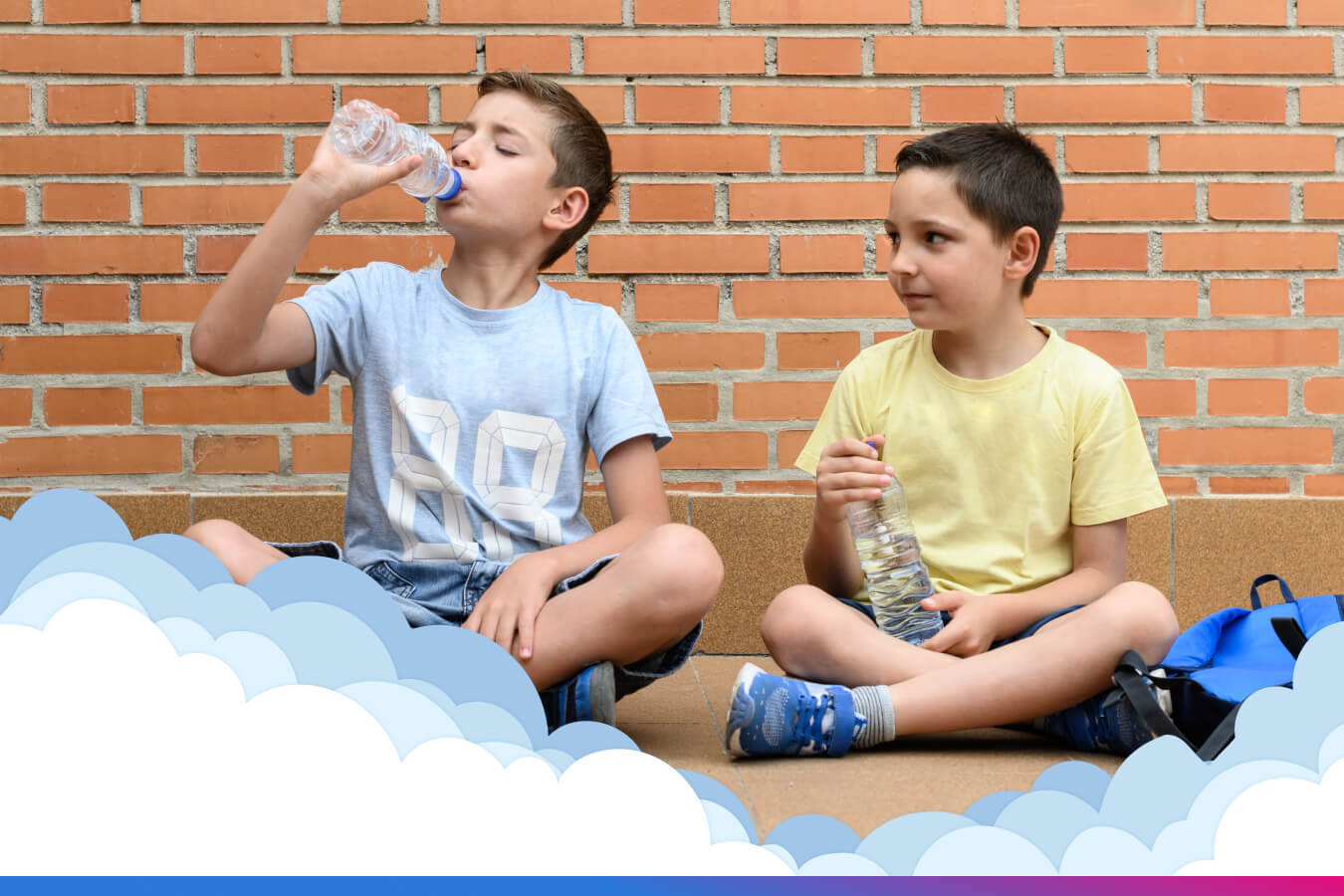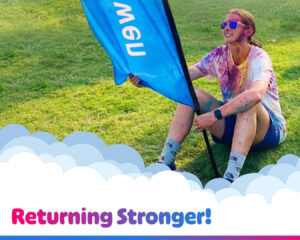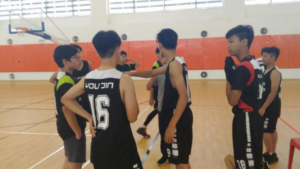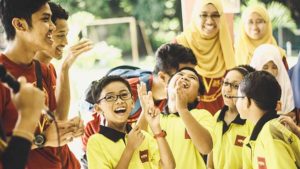As educators we are committed to empowering our students, encouraging them to take agency and make a positive impact in their class, school, and wider community. One of the key areas I have fostered a focus is teaching my students not only about physical health but also about sustainability and responsibility.
I have some useful ideas to share with you if you are interested?
As part of the PSPE curriculum, I encourage students to recognise the critical importance of hydration during physical activities. As we know, staying hydrated not only promotes physical performance but also enhances cognitive function and overall well-being. We want our students to drink water and stay hydrated!
How many of you experience the common issue of many students forgetting their water bottles?
In my classes this led to an increased reliance on single-use paper cups. As I reflected after a lesson in which I had five students asking for a paper cup I realised that this reliance not only contributed to waste, but also contradicts our goal of fostering responsible habits.
Tackling the Challenge
To tackle this challenge, I implemented a system that tracks paper cup usage by class. At the end of the semester, the class with the lowest tally receives a special reward. This initiative is more than just a game; it encourages students to take ownership of remembering to bring their water bottles to class while also considering the environmental impact of their choices.
Success!
Last semester, I was delighted to see some classes go completely paper cup-free! Students have started to remind one another to bring their water bottles, and this small shift has made a significant difference. Not only has there been a noticeable reduction in waste during PSPE lessons, but students are also learning to be more responsible and mindful.
Going Further
This semester, I’ve introduced an inquiry-based approach to further explore the ‘why’ behind reducing paper cup usage. We invite our students to ask questions, investigate the implications of their choices, and understand the impact of waste on the environment. By developing self-management skills through this process, students learn to take meaningful action and think critically about the implications of their everyday decisions.
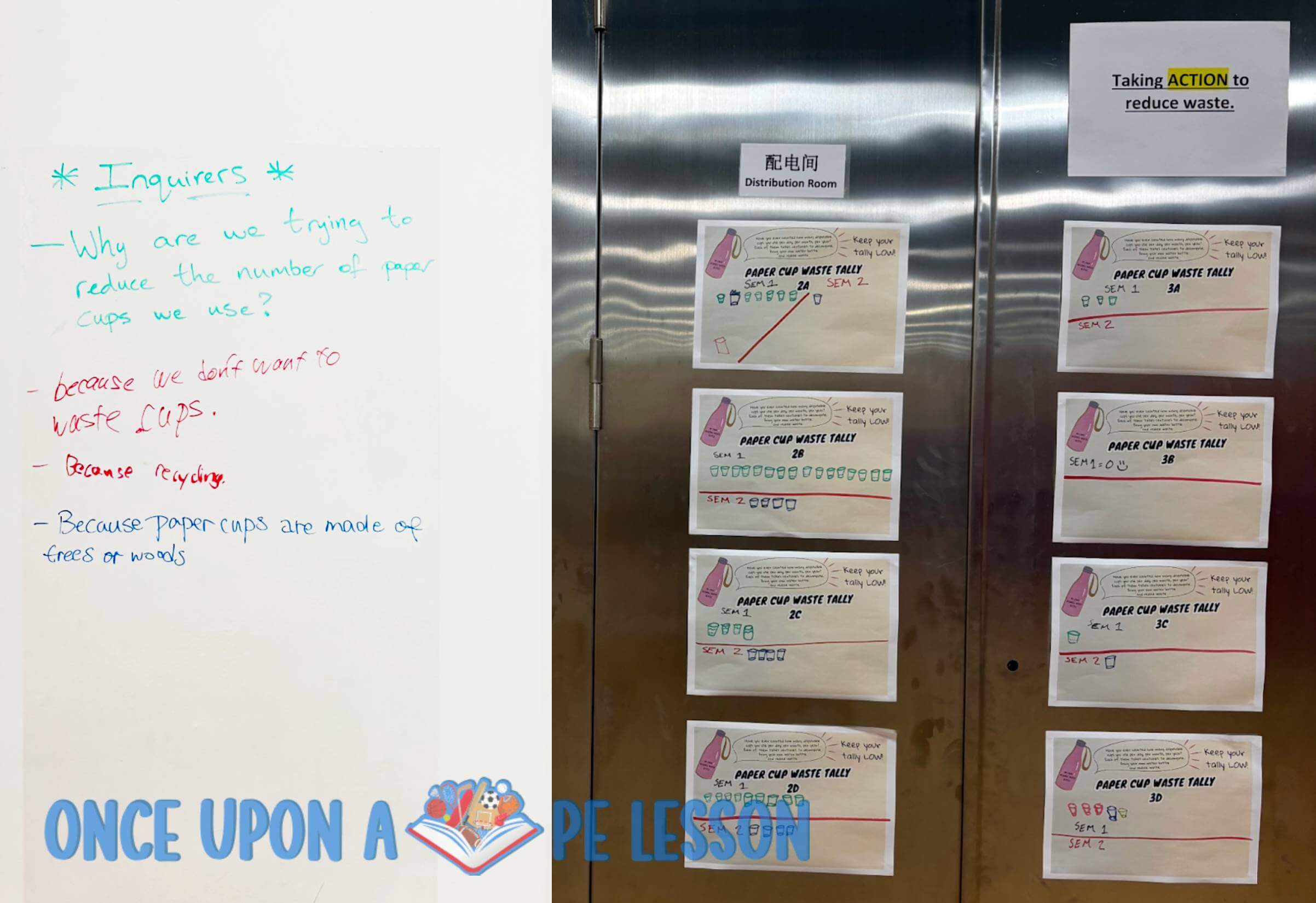
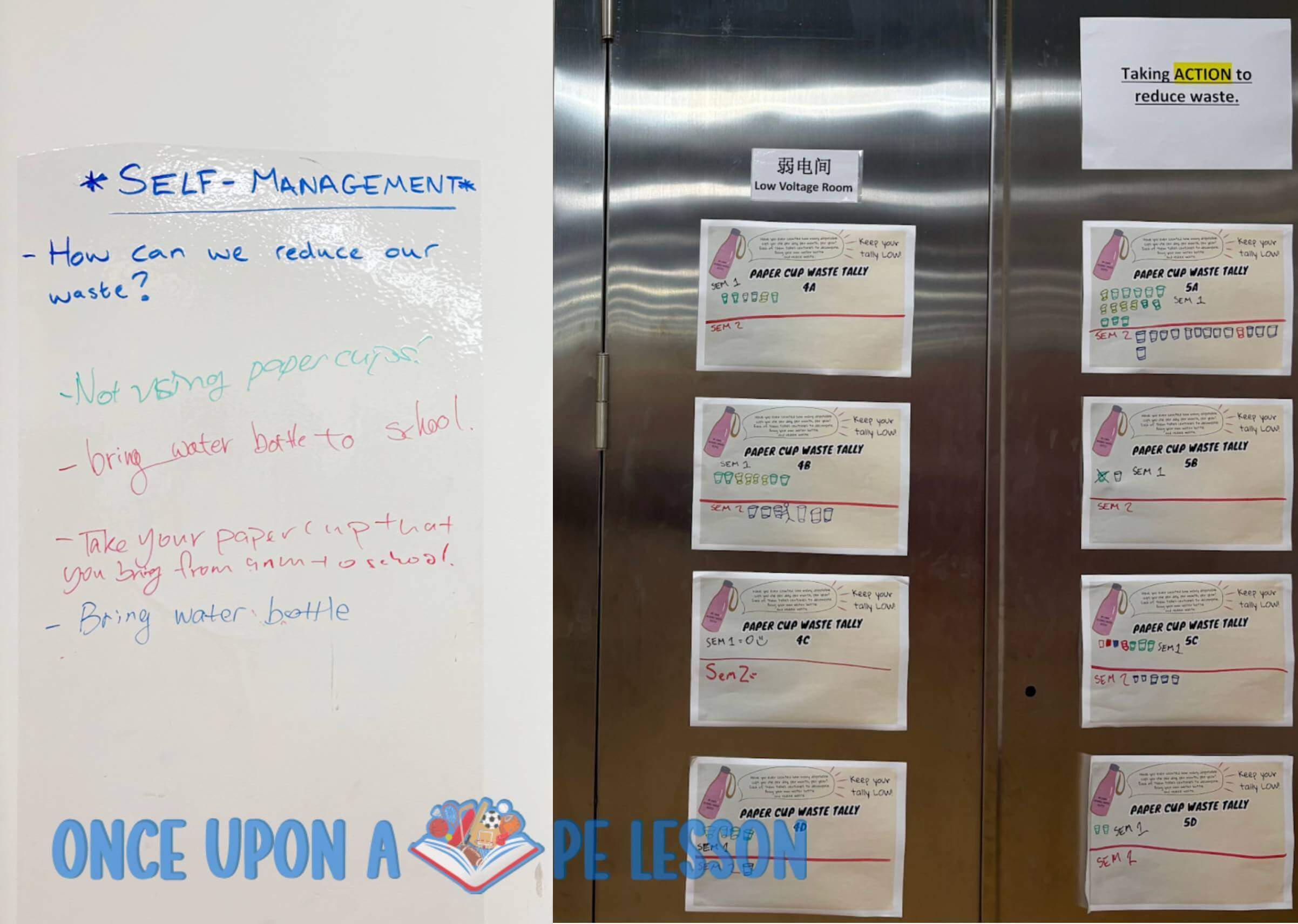
Small Changes Make a Big Difference
I’m sure we can all agree that PE, PHE, PSPE is about much more than physical activity or playing games; it’s a critical platform for cultivating responsible habits and fostering a sustainable mindset. As educators, we have the unique opportunity to influence our students not only through physical education but also through instilling values that will serve them—and our planet—well in the future.
Can you think of any actions you can facilitate which will empower your students to make a positive impact in their communities?
Let’s continue to inspire our students to take action, think critically, and lead the way toward a more sustainable future!
